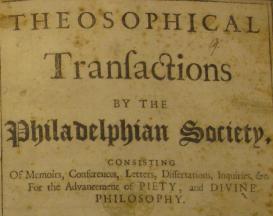Histories of music theory in the eighteenth century are generally written as triumphant narratives of the scientific successes of experimental philosophy in solving questions of tuning, temperament, and tonality. Connections with contemporary millenarian movements, religious enthusiasm, and metaphysical belief are downplayed as fringe, if they are discussed at all. This project proposes rethinking the relationships between theory and practice, between philosophy and theosophy, by examining the overlap between apocatastatic groups such as the Philadelphian Society and the theorists and practitioners of the “new” music at the turn of the eighteenth century. The project traces the apparent origins of Ramellian theories like the corps sonore and the fundamental bass in a Behmenist metaphysics of resonance, as detailed in publications of the Philadelphian Society from the end of the seventeenth century. These writings may in fact contain the first published accounts of partimento procedures, though expressed in Newtonian terms. The project also reexamines the tuning experiments presented to the Royal Society by Thomas Salmon in 1705, as the court musicians involved in them were heavily involved with the Philadelphians and, later, the French Prophets. The resulting dual history of acoustic experiment and millenarian conviction will reveal the enthusiastic fundaments of eighteenth-century music theory, tracing intellectual and spiritual connections that continue to resonate today. Even during the so-called Enlightenment, investigations into the acoustic properties of sounding bodies were never far from the realm of metaphysics.

Theosophical Transactions by the Philadelphian Society I, March 1697 © Rebekah Ahrendt
Project
(2019-2020)
Instruments of God: Toward a Metaphysics of Music Theory
- Rebekah Ahrendt
